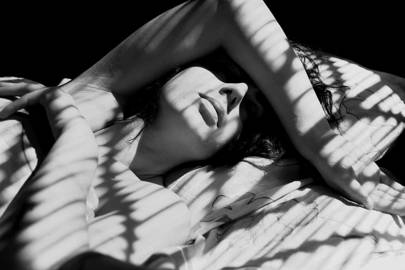Getting forty winks used to be just that; the simple act of sleep that punctuated our days, uncomplicated and universal. Now, we measure our sleep quality, track our hours of rest, and empty our bank accounts in pursuit of the ‘perfect’ sleep. FHM investigates how sleep became the ultimate wellness goal…

Are you an early riser or a night owl? Can you get by on as little as six hours, or do you need double digits to feel rested? Sleep used to be something that simply happened once dinner was eaten, the day was done, and our eyes would stay open no longer. Now, the pursuit of the perfect night’s sleep has become the ultimate wellness goal, and sleep itself has inched into becoming a billion dollar business.
Silicon Valley tech bros have tried to “hack” it with micro-naps, ice packs attached to their bodies and electrodes strapped to their heads. The wellness brigade are proponents of the polar opposite: removing technology from your bedroom altogether for “clean” sleeping. Or perhaps you’re more of a luxury snoozer, with a Casper mattress, Olivia Von Halle pyjamas and Neom Organics candles to scent the room – Cult Beauty has seen 121% growth in searches for their ‘sleep’ category, while night-time skin treatments have grown as a category some 320%.
It marks a definite shift from the ’90s heyday of “work hard, play hard” when bragging about how few hours you’d had the night before was a badge of honour. Of course, poor quality sleep is nothing new (Aristotle complained of insomnia in 350BC, so don’t let anyone lambast you for loving late-night Netflix), but the difference is now when a colleague tells you they slept poorly, they have the data to back it up. “Only 32% quality last night”, their app will tell them.
It’s also worth noting that to feel tired sometimes is normal – you are only human, and humans do not fire on all cylinders all day, every day. Hoping to remove tiredness or fatigue from your life altogether will be about as fruitful as attempting to eliminate your own hunger, or need to sneeze. “Generally, we measure tiredness not by how you feel immediately on waking, but on how difficult you find it to stay awake during the day, using something called the Epworth Scale,” added Professor Walker.
The professor’s advice? “Go to bed, and get up!” he laughed, noting that attempts to return to a “caveman” style of sleeping were an unhelpful fad. His advice for treating insomnia was to get to the root of it, suggesting an NHS-sponsored online sleep cognitive behavioral therapy course called Sleepio, which is free in many parts of the country. Otherwise, his general snoozing tips were to keep your bedroom for sleeping, and not for working or spending idle hours scrolling on your phone, trying to maintain a regular routine, and minimising general blue light exposure before bed.
We all must sleep to live, and anything that helps you on your way, be that thousand thread count sheets or whale music, is indeed an investment in your health. As for power naps, “clean” sleeping, wearable trackers and the rest of that ilk? Sleep on it.
